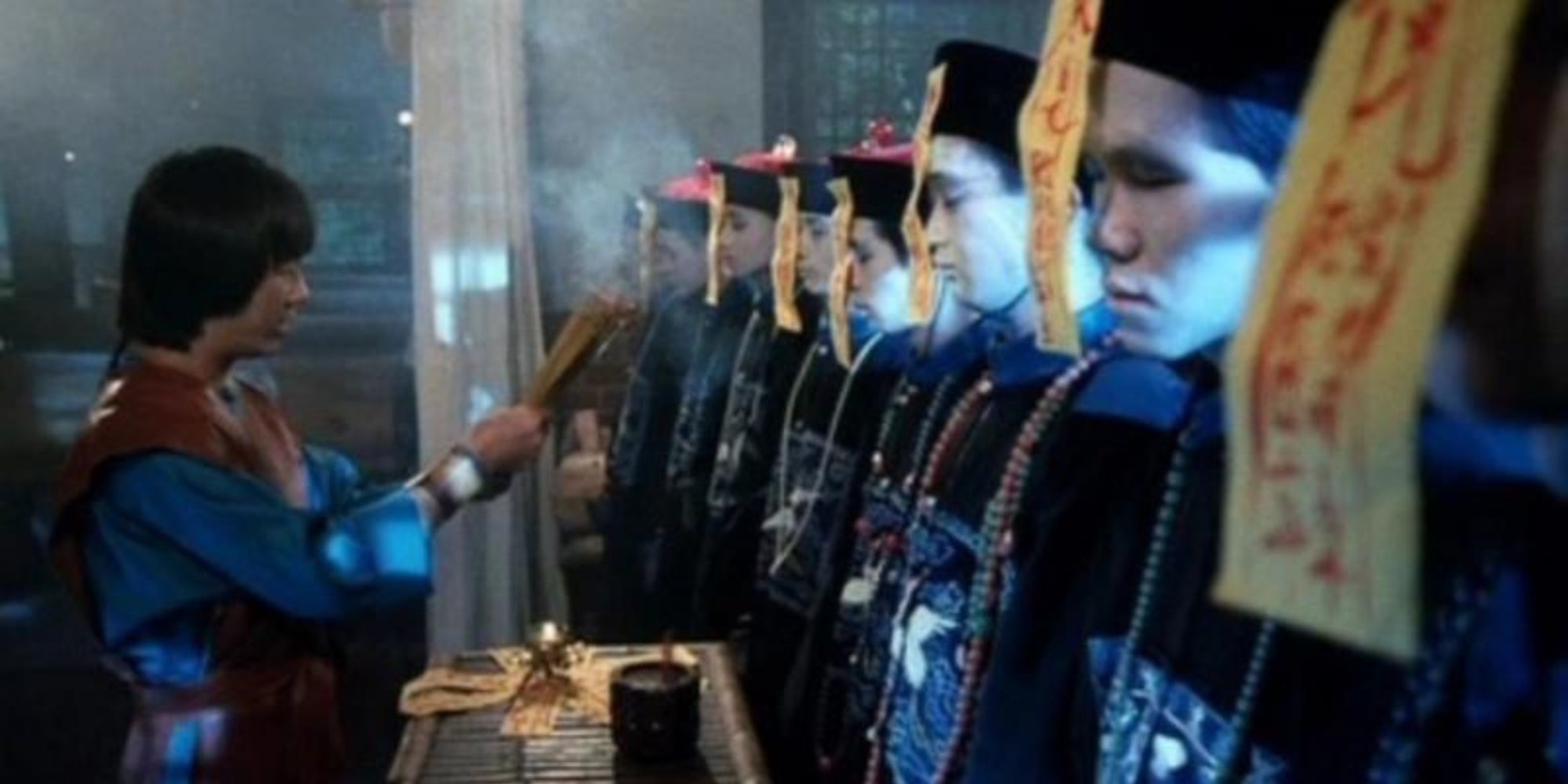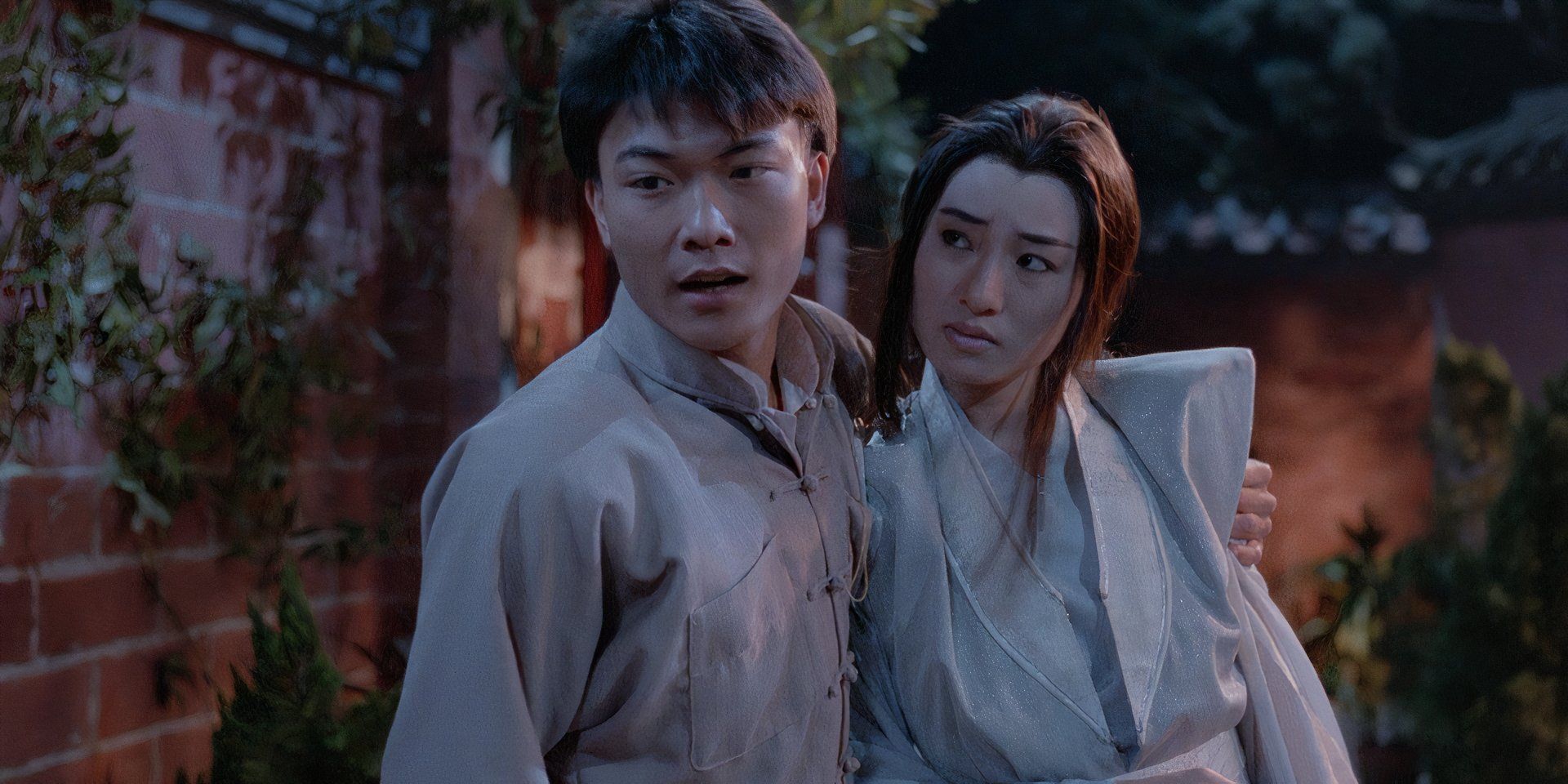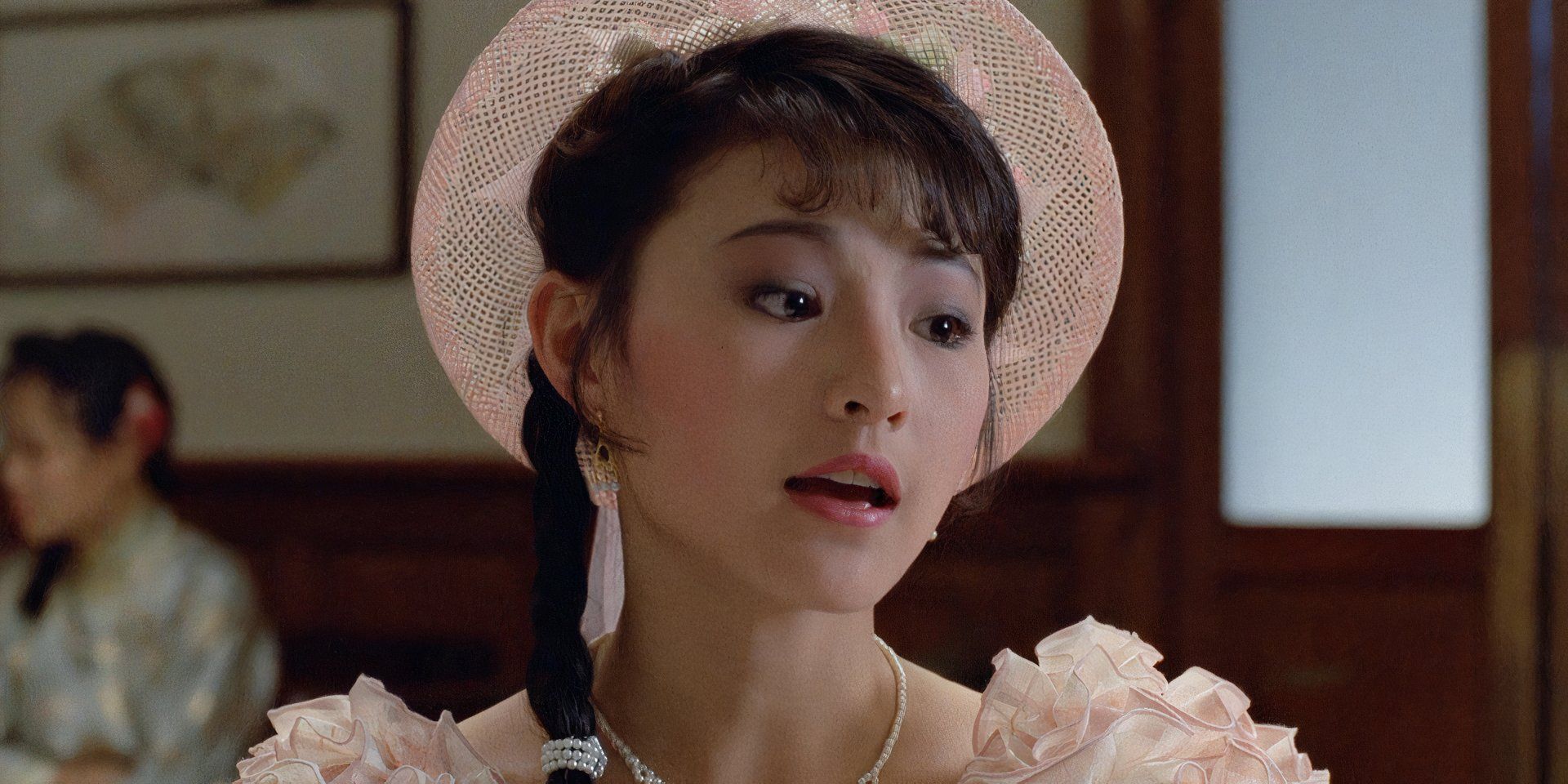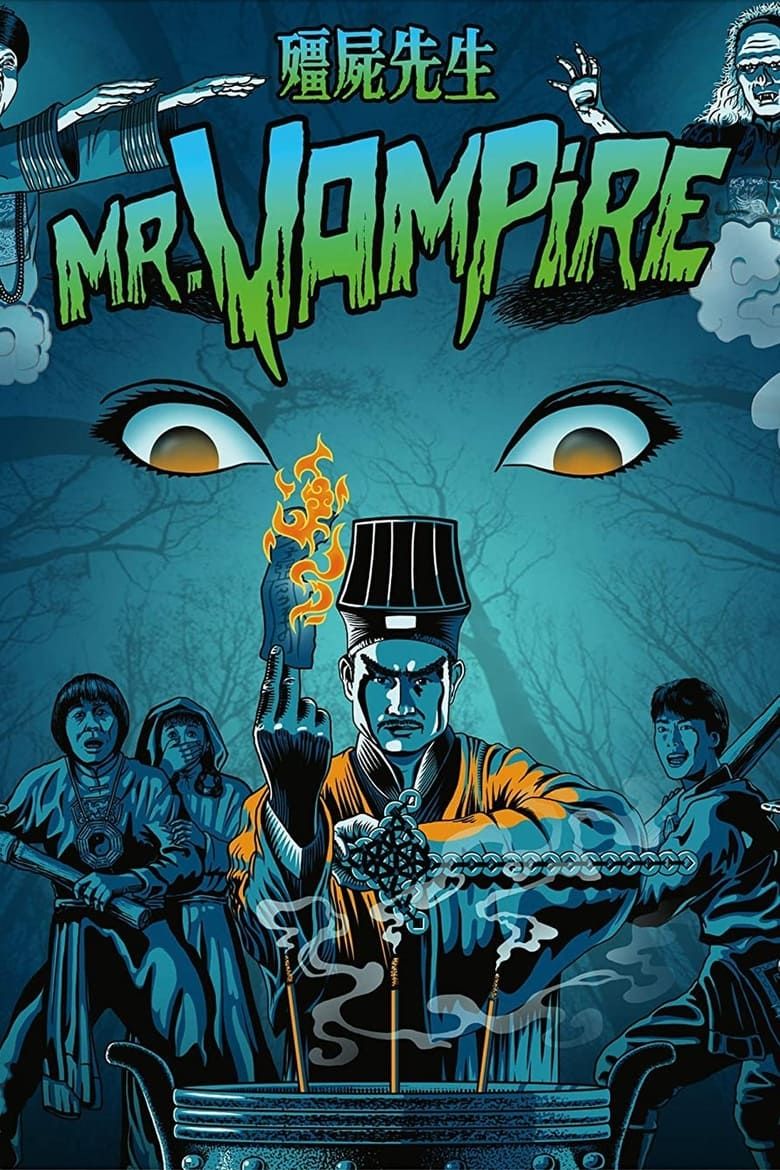[ad_1]
It’s not often that when someone asks you what you’re watching, you can say with a straight face “A Hong Kong action horror kung fu comedy.” but that is exactly what Mr. Vampire, the 1985 genre mash-up directed by Ricky Lau, is. The film is a highly influential entry in the jiangshi film genre and combines slapstick comedy, kung fu, and horror to delightfully perplexing effect. The movie helped spawn a slew of copycats in the mid-late ’80s in China and has remained a cult favorite among fans of ridiculous horror comedy classics like Evil Dead II and Re-Animator.
What Is ‘Mr. Vampire’ About?
The plot of Mr. Vampire is undeniably complicated, even convoluted, for a film that’s a little over an hour and a half. The film follows a priest, Master Kau (Lam Ching-ying), who has a vast knowledge of supernatural arts and rituals in the Taoist tradition, especially those that deal with the proper burial techniques of the deceased. Kau has two bumbling apprentices, Man-choi (Richard Hui Koon-ying) and Chau-sang (Chin Siu-ho) who spend the majority of the runtime making the situation worse. Master Kau, Man-choi, and Chau-sang are asked by Master Yam, an affluent businessman, to dig up and rebury his late father so that his family and business will experience better luck, believing the current resting place will not do so. Kau and his apprentices comply, and all hell breaks loose as a result. To their dismay, the body of Yam’s father has remained intact despite being buried for over two decades, leading Kau to suspect that the corpse is transforming into a vampire (or a zombie? It’s never really made clear despite the title).
‘Mr. Vampire’ Is a Surprisingly Important Entry in the History of Chinese Cinema
Despite being relatively obscure in the United States except for the most ardent of genre fans, Mr. Vampire is an exceptionally influential film in the greater context of Chinese cinema. The film brought on the popularity of the jiangshi genre, which, prior to Mr. Vampire, existed almost exclusively in ancient literature, specifically that of the Qing dynasty. The genre has the very specific trope of following a priest who maintains spiritual power over the undead. In Mr. Vampire, the “undead” have bluish, discolored, rotting skin, akin to the zombies found in a George Romero film. In ancient Chinese literature, the zombies hop around. Mr. Vampire uses this behavior of the dead to great comedic effect, as the film’s characters often point in horror to an onslaught of hopping corpses.
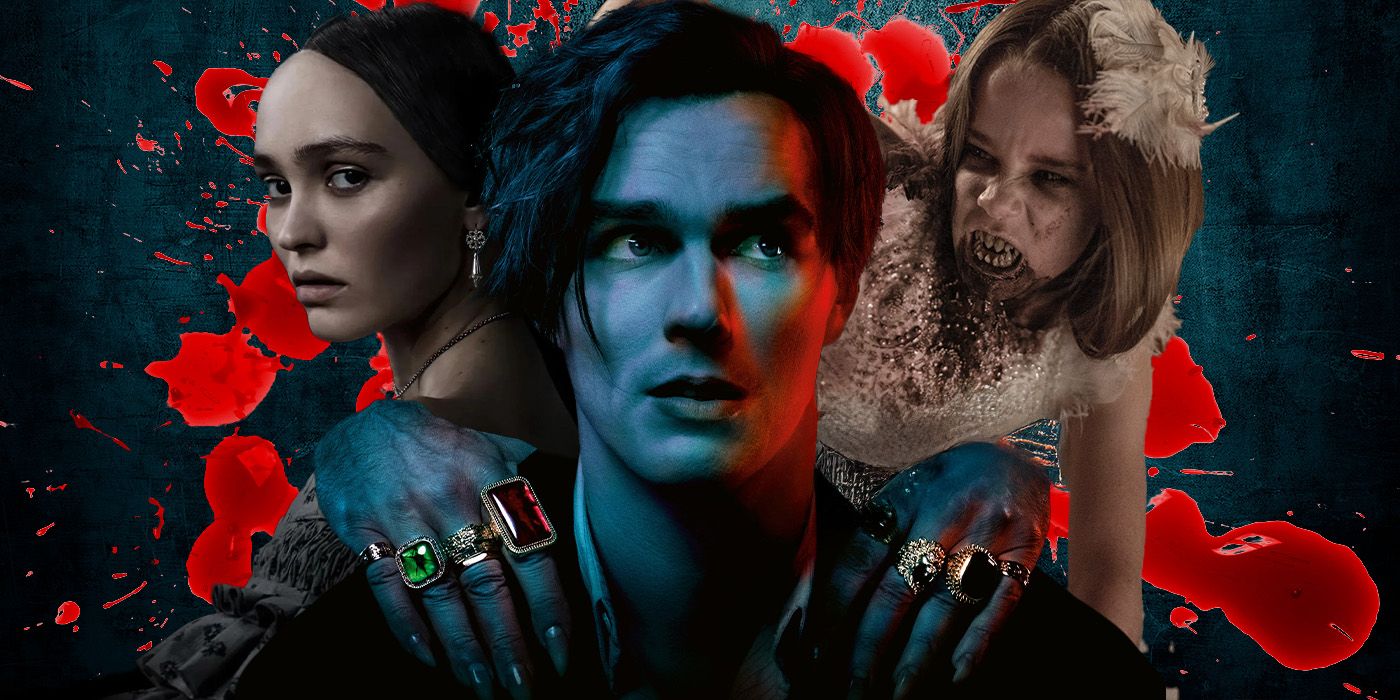
Related
The 10 Best Vampire Movies of the 2020s So Far, Ranked
“Come to me. A guardian angel. A spirit of comfort. Spirit of any celestial sphere. Anything. Hear my call.”
Mr. Vampire has enjoyed success among both audiences and critics, snagging many award nominations and developing a substantial cult following. While the specific lore and mechanics of the jiangshi genre were nothing new at the time of Mr. Vampire‘s release, the movie added staples to the genre in film form that would go on to be replicated for decades. The tropes of the serious master with a bumbling idiot for an apprentice, the blend of kung fu and comedy, and the emphasis on comical entertainment as opposed to the serious folklore it is based on all started with Mr. Vampire.
‘Mr. Vampire’ Brought New Possibilities to Well-Worn Genres
As mentioned above, the film has heavy doses of comedy, horror, and action. In fact, it’s a little difficult to accurately label it as any of the above, as all three dominate. It’s at times overstimulating, as your eye is drawn to everything happening in the frame, and you feel like you can’t help but miss out on so much absurdity taking place all at once. It’s something that films like Everything Everywhere All at Once and Kung Fu Hustle clearly took influence from, as those movies are nearly impossible to categorize as well. The slapstick happens in tandem with the horror, and the film is comically but purposefully artificial-looking, with striking blues and heavy lighting that emphasize the B-movie make-up. Mr. Vampire‘s sense of fun and self-awareness, as well as its unparalleled originality, make it an experience worth having.
The filmmaking at hand is also mesmerizing, albeit in a less-than-conventional manner. The look of Mr. Vampire is both cheap and stylish. While many horror films, even horror comedies, tend to go for a darker look, Mr. Vampire keeps everything bright and in frame, unafraid to let the strings show. This audaciousness on the film’s part gives it an extra level of charm. It’s clear that the filmmakers knew exactly what kind of film they wanted to make. There is a true vision here, which is more than you can say for a lot of films of the era.
Mr. Vampire is not merely a curiosity, but a truly original piece of horror-comedy filmmaking on par with some of the decade’s most beloved classics. The goal of the film is clearly to give the audience a memorable ninety-minute ride, as well as to show them something they haven’t seen before. Check out Mr. Vampire and open your world up to hopping zombies with long blue fingernails. It is glorious.
Mr. Vampire is available to watch on the Criterion Channel.
[ad_2]
Source link

